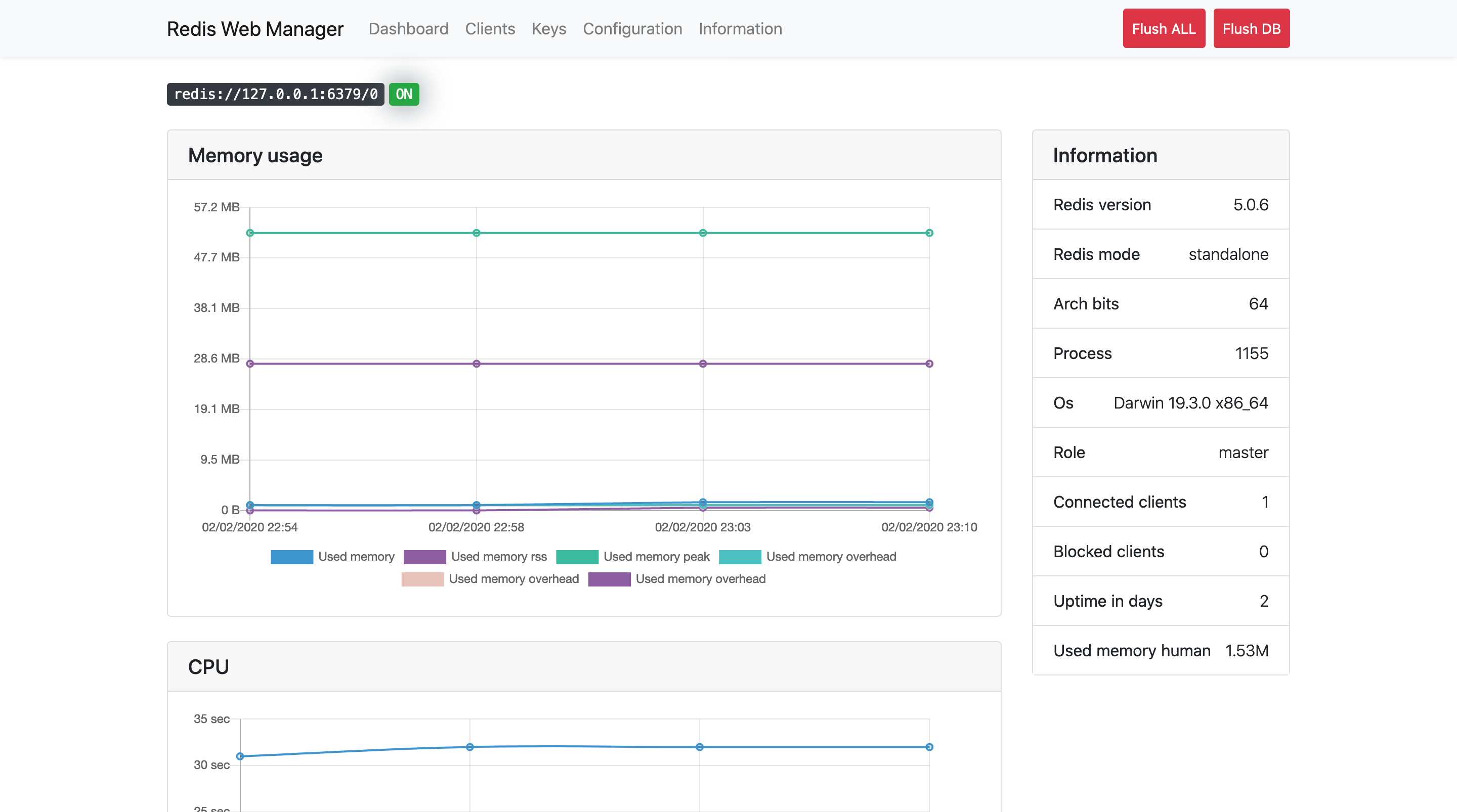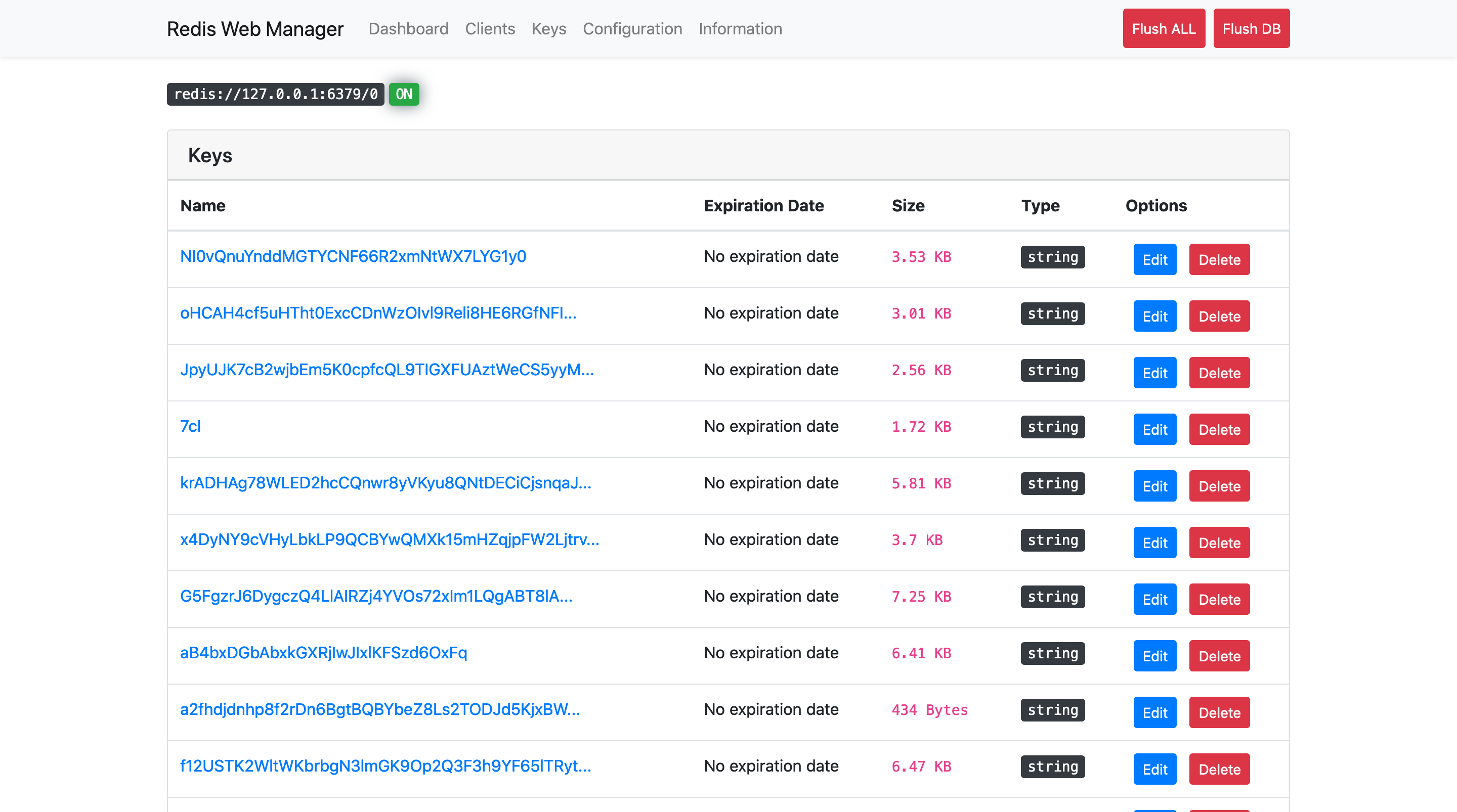Web interface that allows you to manage easily your Redis instance (see keys, memory used, connected client, etc...).
The Dashboard allows you to check the Memory usage, CPU and Redis clients.
You can easily edit and delete any keys stored in your redis database.
Check how many clients are connected and their infos.
Add this line to your application's Gemfile:
gem 'redis_web_manager'And then execute:
$ bundleOr install it yourself as:
$ gem install redis_web_managerAdd the custom route in your routes.rb:
mount RedisWebManager::Engine => '/redis_web_manager'
Access to RedisWebManager at /redis_web_manager
You can configure RedisWebManager:
# initializers/redis_web_manager.rb
RedisWebManager.configure do |config|
config.redises = {
default: Redis.new(db: 1),
production: Redis.new(url: 'XXX')
} # Default { default: Redis.new } (Hash with instance(s) of Redis)
config.lifespan = 2.days # Default 15.days (Lifespan of each keys for dashboard)
config.authenticate = proc {
authenticate_or_request_with_http_basic do |username, password|
username == 'TEST' && password == 'TEST'
end
} # Default nil (Authenticate method to secure tools)
endIn order to have data on your dashboard you must collect the data like this:
data = RedisWebManager::Data.new(:default)
data.performor
RedisWebManager.redises.keys.each do |instance|
data = RedisWebManager::Data.new(instance)
data.perform
endIf you are using a system to run background tasks in your application (like Sidekiq, Sucker Punch or ActiveJob), you can write your own background task to update the dashboard statistics.
Sidekiq exemple:
class DashboardWorker
include Sidekiq::Worker
def perform
data = RedisWebManager::Data.new(:default)
data.perform
end
endor
class DashboardWorker
include Sidekiq::Worker
def perform
RedisWebManager.redises.keys.each do |instance|
data = RedisWebManager::Data.new(instance)
data.perform
end
end
endSucker Punch exemple:
class DashboardJob
include SuckerPunch::Job
def perform
data = RedisWebManager::Data.new(:default)
data.perform
end
endor
class DashboardJob
include SuckerPunch::Job
def perform
RedisWebManager.redises.keys.each do |instance|
data = RedisWebManager::Data.new(instance)
data.perform
end
end
end- Add graph for most used commands
- Real time chart update
- Alert system (ex: triggered when memory is peaking)
- Command line interface to manage your redis database
- Logs interface
Bug reports and pull requests are welcome on GitHub at https://github.com/OpenGems/redis_web_manager. This project is intended to be a safe, welcoming space for collaboration, and contributors are expected to adhere to the Contributor Covenant code of conduct.
The gem is available as open source under the terms of the MIT License.



